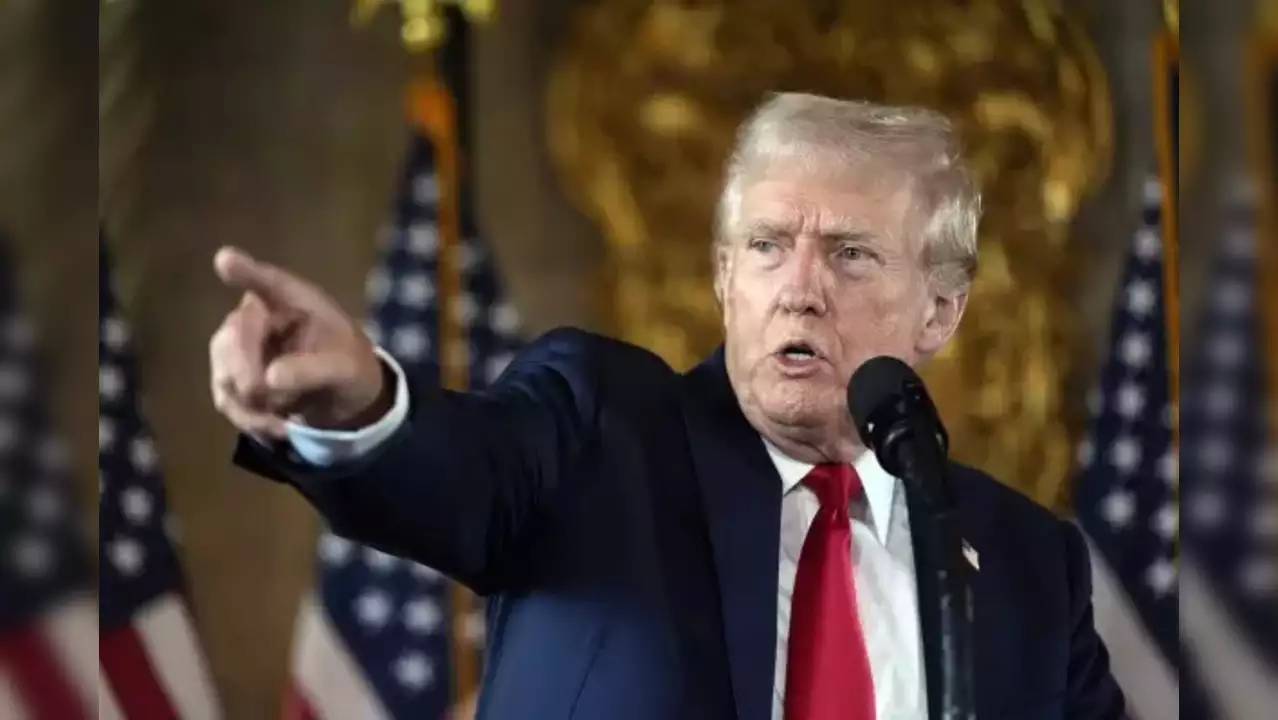Reports have emerged suggesting that Donald Trump, the US President-elect, is planning to reintroduce and expand his previous ban on transgender individuals serving in the US military.
This move has reignited concerns within the LGBTQIA+ community and beyond, sparking debates about human rights, military effectiveness, and broader cultural implications.
The executive order, reportedly planned for Trump’s first day back in office, could lead to the expulsion of around 15,000 transgender service members currently serving in various branches of the armed forces.
Historical Context: Donald Trump’s Previous Military Ban
During Trump’s first term as President, he enacted a controversial policy that barred transgender individuals from joining the military, although those already serving were allowed to remain under certain conditions.
This policy, introduced in 2017, marked a stark reversal from the progressive stance adopted by the Obama administration, which had opened the doors for transgender individuals to serve openly.
Trump’s justification then was framed around concerns about medical costs and unit cohesion, though many experts and veterans criticized the move as discriminatory and unfounded.
President Joe Biden’s administration reversed this ban in 2021, restoring the right of transgender individuals to serve openly and receive necessary medical care. This decision was seen as a significant step towards inclusivity and recognition of the contributions made by transgender personnel.
Read : Ellen DeGeneres Leaves US Along With Partner Portia De Rossi After Trump’s Win
According to reports, approximately 2,200 service members were diagnosed with gender dysphoria, while many others identified with a gender different from the one they were assigned at birth.
Read : Trump Challenges Biden to Golf Match with $1 Million Charity Bet
Trump’s proposed reinstatement of the ban now appears to be more sweeping, targeting both new recruits and those already serving. This would not only affect thousands of individuals directly but also send a powerful message about the administration’s stance on transgender rights more broadly.
Implications for the Military and Society
The potential expulsion of transgender service members raises significant questions about military readiness and morale. Many military experts argue that the presence of transgender personnel has not adversely affected operational effectiveness or unit cohesion.
On the contrary, these individuals have often demonstrated high levels of commitment and professionalism, contributing significantly to the armed forces.

Medically discharging transgender individuals as “unfit” to serve also perpetuates harmful stereotypes about their capabilities. Such a policy risks undermining the principle of meritocracy within the military, where individuals are judged based on their skills and performance rather than their identity.
Moreover, the financial cost of training and then discharging these personnel is considerable, representing a potential waste of resources and talent.
Beyond the military, Trump’s proposed policy reflects a broader cultural and political agenda. His rhetoric against “wokeness” and “left-wing indoctrination” has resonated with certain segments of the population, but it has also fueled division and hostility.
By targeting transgender individuals, Trump is tapping into a wider discourse about identity, rights, and the role of the state in regulating personal freedoms. This approach risks deepening societal divides and marginalizing already vulnerable groups.
Reactions and Future Prospects
Unsurprisingly, the reports of Trump’s proposed policy have sparked strong reactions from various quarters. Advocacy groups have condemned the move as a blatant attack on transgender rights, warning that it could have devastating consequences for individuals and their families.
Many have pointed out that serving in the military is not just a job but a calling, and being forced out due to one’s gender identity represents a profound injustice.

Politically, this issue is likely to become a significant point of contention in the run-up to the next election. Democrats and progressive groups will almost certainly highlight it as evidence of Trump’s regressive agenda, while his supporters may see it as a necessary step to restore “traditional” values and military strength. This polarization reflects broader trends in American society, where issues of identity and rights have become key battlegrounds.
The international community will also be watching closely. The US has often positioned itself as a champion of human rights, but policies like this undermine that credibility. Allies and partners may question America’s commitment to inclusivity and equality, potentially affecting diplomatic relationships and soft power.
In the end, the fate of transgender individuals in the US military will depend not just on political decisions but also on societal attitudes. The growing visibility and acceptance of transgender people in recent years represent significant progress, but this progress remains fragile. Policies like the one Trump is reportedly planning serve as a reminder that rights can be rolled back as easily as they are granted.

